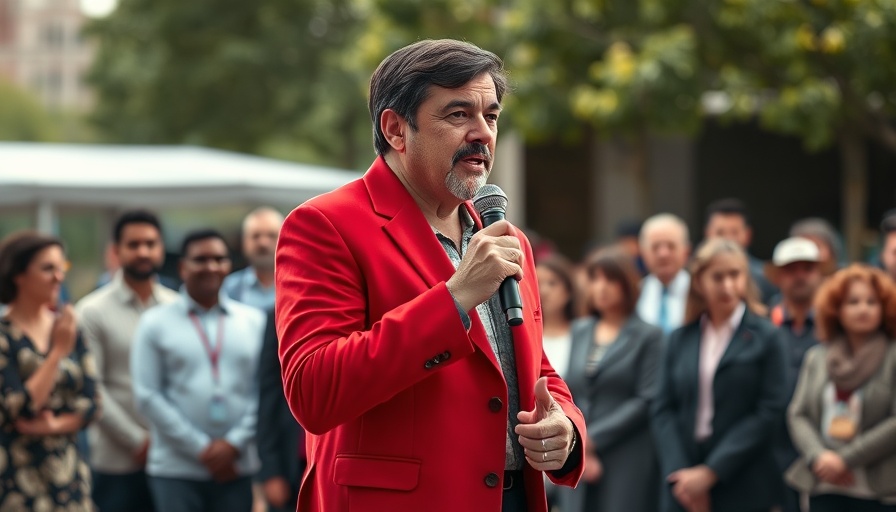
The Battle Over County Reserves: A Political Flashpoint
As San Diego County embarks on a critical special election for the Board of Supervisors, the allocation of reserve funds looms large. The tension surrounding how these funds should be employed not only reveals deeper political divides but also raises important questions about fiscal responsibility and community priorities. This divisive issue has sparked fervent discussions as candidates make their cases to local residents.
Diverging Views on County Spending
At the heart of the debate is the proposal from board Democrats to utilize up to $355 million from the county's rainy day fund to buffer expected cuts in Medicaid and other essential services. Chula Vista Mayor John McCann, a Republican candidate, has strongly opposed this proposal, branding it as a misuse of emergency funds intended for genuine crises such as wildfires or major disasters.
“Turning our emergency fund into a slush fund is not the answer,” McCann stated during a recent press conference, where he, alongside Republican Supervisor Jim Desmond, outlined specific programs they would consider cutting instead, such as free phone services for inmates and legal aid for undocumented immigrants. Both candidates argue for returning to the county's core mission, emphasizing fiscal prudence over what they label politically motivated expenditures.
Democratic Counterarguments: A Focus on Future Preparedness
On the flip side, Democrats like Terra Lawson-Remer and Monica Montgomery Steppe defend their approach, asserting that their proposal aims to shield the community from potential future emergencies. They argue that preparing for cuts in federal funding is a necessary proactive strategy, one that does not diminish core services but strengthens the county's social safety net.
Paloma Aguirre, a Democratic opponent of McCann, sharply criticized his stance, suggesting that it reflects a broader Republican agenda detrimental to vulnerable populations. Aguirre accused McCann of supporting cuts to Medi-Cal and nutrition programs, although McCann firmly refutes these claims. This back-and-forth highlights how each campaign attempts to shape narratives in their favor as they reach out to voters.
Understanding the Stakes for San Diego Residents
For residents of San Diego County, the implications of this debate are significant. As budgetary decisions directly affect social service programs crucial for many families, understanding each candidate's approach is vital. The stark contrasts between prioritizing reserve funds for genuine emergencies versus utilizing them for immediate political agendas reflects larger concerns about how community needs are recognized and addressed.
This election could redefine how the Board of Supervisors engages with local residents, determining the level of support for vital programs that many depend upon. As candidates grapple with these touchy issues, a strong emphasis on transparency and accountability is essential for the voters.
Informed Decision-Making: The Role of Community Voices
As the special election approaches, San Diego residents are reminded that their voices will shape the outcome. With each candidate proposing contrasting visions for the future, community engagement is essential for making informed choices. Residents need to critically evaluate how candidates address budget challenges and their potential impacts on everyday life.
Attending town hall meetings, engaging in local discussions, and reaching out to candidates can empower voters to make decisions aligned with their values and needs. Understanding the intricacies surrounding the county's budget and its consequences for core services is not only beneficial but essential in fostering a robust democracy in San Diego.
Final Thoughts: A Call to Civic Engagement
As elections loom closer, now is the time for San Diego residents to take action. Engaging with the candidate discussions surrounding budget allocations allows individuals to advocate for their priorities and connect with their community on a deeper level. The decisions made during this election cycle will have lasting impacts on local services and the overall well-being of the community. Voter engagement and dialogue are paramount in ensuring that elected officials are held accountable.
 Add Row
Add Row  Add
Add 




Write A Comment